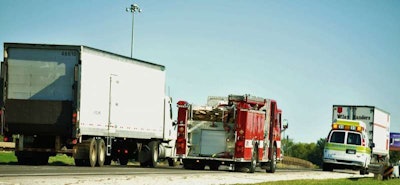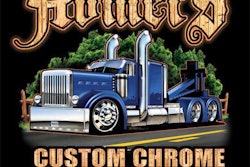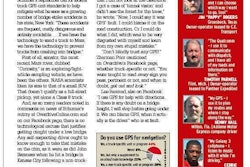
The public relations blame-game back-and-forth between the American Trucking Associations and advocacy groups like Parent Against Tired Truckers and Citizens for Reliable and Safe Highways saw a particularly pathetic entry in February, as Overdrive Editorial Director Max Heine wrote on Overdrive Extra. The Truck Safety Coalition, a partnership of PATT and CRASH, tried to put a shell over an ATA report that analyzed studies conducted over a decade to conclude that in car-truck crashes on the nation’s highways the four-wheeler was at fault in nearly 80 percent of cases.
The coalition’s open letter to the ATA disputed the very existence of reliable data on the issue and attempted to frame the discussion around the disproportionate number of automobile drivers and passengers who die as a result of car-truck collisions, along the way suggesting that fault is seldom able to be determined in crashes. “To insist that fault cannot be determined in some accidents is to ignore the fact that it is easily determined in most,” wrote Daniel McCreary, commenting on the issue at Overdrive’s Facebook page. “I was involved in one of those collisions…. I was hit four feet on my side of the line by a four-wheeler.”
| Truckers can play the shell game too | “What the ATA should have said to start with, and the folks who allegedly are interested in ‘highway safety’ always magically ignore, is the around [85 percent] of all highway fatalities do not involve a commercial vehicle! This argument that they are having is about the roughly [one sixth] of highway fatalities that do involve a truck. All of those other deaths are never addressed.” –Kurt Keilhofer, commenting at OverdriveOnline.com |
McCreary joined others in questioning the agenda of groups like the TSC: “It seems as if they’re more interested in simply sticking it to truckers rather than working to help make the roads safer.”
M. Rick Richards referred to TSC, CRASH, and PATT as mere “shills of the railroads, created to attack the trucking industry any chance they get.”
Commenting under the story at OverdriveOnline.com, Scott Lawrence told the tale of a recent accident he was involved in where he was rear-ended at 1 a.m. in the morning in the middle of nowhere in Idaho. “There was absolutely nobody on the road but the two of us,” he said of himself and the couple in the car that hit him. The driver was moving too fast and “fooling around with a cell phone or something,” Lawrence said, and while he “blames split speed limits” the “bottom line is this: the Idaho Trooper drove out the accident scene three times” and was in fact able to determine fault. “The four-wheeler was at fault and ticketed.”
Lawrence “felt bad for the driver and his girlfriend” (both were unhurt), “but I was doing what I should have been doing, and they were not.
“When you get right down to it, people like to blame the truck drivers because of the ‘deep-pocket’ insurance payouts. We are at fault because trucking companies would rather pay out on a claim than challenge it” in many cases.
Gordon Alkire urged fellow owner-operators to follow his lead to “fix this folly” and “install dash cameras to verify the actions of the four-wheelers. I have one looking forward out the dash, and boy does it capture some dumb moves by car drivers.”
Send videos of such action, Alkire suggested, to the authorities and so-called “experts who are against trucks. The blame does not fall on us as a majority. Yes, there are some truck drivers that should not be behind the wheel but in numbers nowhere close to drivers of four-wheelers that should not be driving.”
And, Alkire added, “PATT and CRASH need to clean their own house first…. It is people like them who are causing accidents. It is due to them not being educated on how to behave around trucks on our highways that causes a majority of these accidents.”











